Share
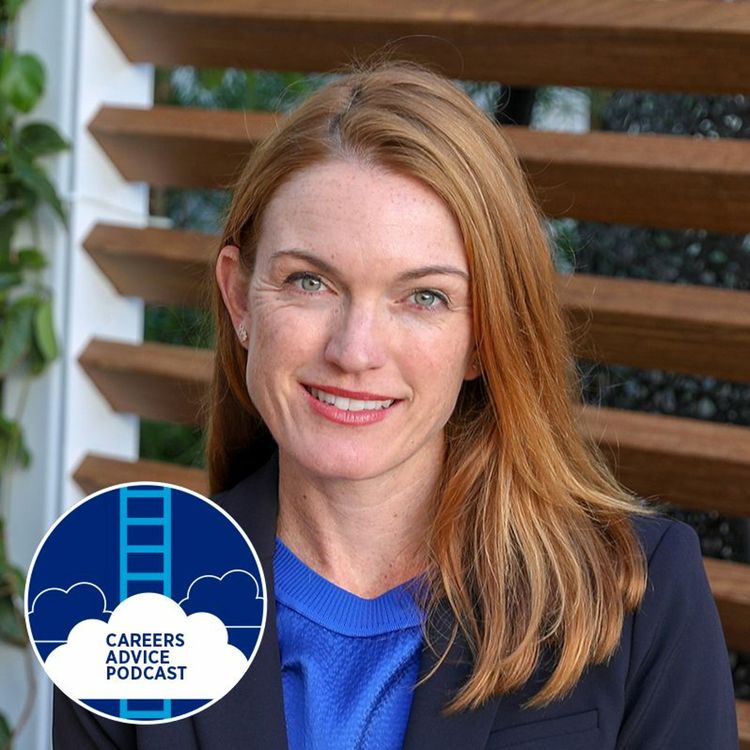
Hays Worldwide - Careers Advice Podcast
Hays Journal 19: How meditation can benefit your career – Dr Megan Jones Bell, Headspace
•
Hays Journal 19: How meditation can benefit your career – Dr Megan Jones Bell, Headspace
In this Hays Journal podcast, Dr Megan Jones Bell, Chief Strategy and Science Officer at Headspace shares how meditation and mindfulness can improve your overall mental health and wellbeing, in both your personal and professional life.
You can read the full transcript here: https://social.hays.com/2020/10/04/hays-journal-19-how-meditation-benefit-career-megan-jones-bell-headspace/
Read 'Tailoring mental health support for your employees - lessons from Headspace' in the latest Hays Journal to find out more: https://social.hays.com/2020/10/06/tailoring-mental-health-support-for-employees-lessons-from-headspace/
Related content:
• Become more mindful, inside, and outside of work: https://social.hays.com/2018/10/09/mindful-work/
• The ABC of managing our wellbeing in an uncertain world: https://social.hays.com/2020/04/15/managing-wellbeing-in-uncertain-world/
• Using mindfulness to improve how we work together: https://social.hays.com/2018/06/05/mindfulness-improve-workplace/
Timestamps:
(01:08) It would be great if you could introduce yourself to our listeners, telling us a little bit about Headspace and the work that you do there.
(02:34) What sparked your passion for supporting mental health and working in that area?
(04:10) And have you seen attitudes change towards mental health in the workplace since the beginning of the pandemic? And if so, how has this impacted Headspace?
(06:03) Well, it's great to hear that it's accelerated and that attitudes and the stigma associated with it has been tackled, and we're allowing people to be vulnerable and have these discussions. Do you think this is a positive trend that will continue for employees in the future going forward as well?
(07:29) You mentioned some of the benefits that companies are offering there. And according to the 2020 mental health trends report by Headspace, which was released in August, 89% of workers, think that their company should be offering mental health benefits to their employees. What have you found that organisations are doing to support their employees to practice good mental health?
(11:00) Could you give us a quick introduction as to what you mean by meditating and recommend how someone completely new to meditation could get started?
(14:15) You mentioned some of the benefits just now, but are there other examples of benefits that meditation can provide on both a personal and professional level?
(16:20) Do you think meditation could help people to be more successful in the new era of work where creativity, adaptability and problem-solving are set to become more important as we have to deal with more changes and adapt?
(18:40) So, it certainly seems that being mindful can help professionals be more successful in their career?
(19:12) For those of our listeners who are currently managing busy schedules inside and outside of work, how would you recommend they go about finding the time to fit in that meditation into their day-to-day lives and their work routines as well?
(22:10) You mentioned some companies that are promoting meditation programs, do you have any examples of organisations that have effectively implemented those programs to help support their employees? And what impact has this had on their workforce?
(24:52) It's obvious that meditation can have immense benefits and I would recommend our listeners do try it. But some of our listeners might not feel like it's right for them, even after they've tried it. So, what can they do to become more mindful?
(26:36) If you had one piece of advice to help our listeners navigate their careers right now, what would that be?
More episodes
View all episodes
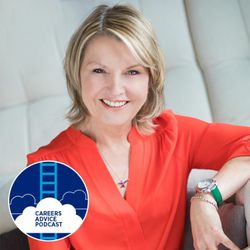
35: How to shine when working remotely - Rosalyn Palmer, Transformational Wellbeing Coach
49:08|In this podcast, Transformational Wellbeing Coach, Rosalyn Palmer shares her expert advice to help those that are looking to shine and secure their long-term career progression in the new era of work. You can read the full transcript here: https://social.hays.com/2020/12/01/podcast-35-shine-working-remotely/ Related content: • Desperately seeking my work mojo – last seen March 2020: https://social.hays.com/2020/09/07/desperately-seeking-work-mojo/ • How to prove your value without burning yourself out: https://social.hays.com/2020/06/30/prove-value-without-burning-out/ • Podcast 32: How to manage career change and uncertainty as we enter a new era of work: https://social.hays.com/2020/08/14/podcast-32-manage-career-change-uncertainty-enter-new-era-work/ Timestamps: (01:06) Please could you introduce yourself to our listeners? (02:21) What impact do you think hybrid or remote working is having on career progression and development? (03:38)I’d imagine for younger employees; remote working will be more difficult by the fact that they're unable to learn from colleagues without that face-to-face guidance. Is it possible that it's impacting generations differently? (06:01) With the reduction in face-to-face visibility, it can understandably be very difficult to prove your value in your role to your team and to the wider organisation. Do you have any tips to our listeners on how they can successfully prove their worth? (09:17) How can our listeners go about communicating success and progress on projects to maintain visibility whilst working remotely? (10:48) How do you think video communication is impacting professional relationships and how is that affecting career development? (16:12) How important do you think strong written verbal communications is to succeed when working remotely. For example, is how you communicate via email and instant messaging platforms, just as important as verbal communications? (18:10) We've spoken about adapting to this new world. Do you think the way in which performance is measured is changing or do you think if it hasn't or isn't already, we can expect it to change with more employees now working remotely? (20:04) What advice would you give to those who may have been on a promotion path before the pandemic and have perhaps found that progress has stalled? (22:28) I imagine that advice applies to people who would like to be considered for a promotion as well, but maybe aren't at the moment. For those people, how can they go about sharing their career goals with their manager? (24:27) Do you think this shift to remote working has led people to feeling like that they're lacking their work mojo, and why do you think this is? (28:51) Talking about not being able to interact with colleagues and perhaps losing your work mojo. What impact do you think this could have on your career progression going back to that point? (30:54) How can those suffering (from changing restrictions) combat that? (36:11) For those that feel their role has become redundant in the new era of work, what's the best way to address this and find the value that they could bring to the organisation? (39:19) How important is it for our listeners to upskill to demonstrate their willingness to learn and how could they go about this? Do you have any advice around that? (43:10) I'd imagine that now is a crucial time for our listeners to be building their personal brand too to maintain visibility. Do you have any tips on that which you can share about how listeners can effectively do this and build their personal brand out? (45:57) If you had one piece of advice to help our listeners navigate their careers through the pandemic and beyond what would that be?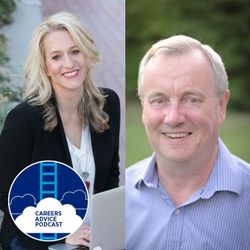
34: The impact of COVID-19 on B2B marketers’ careers - Shake Marketing
25:47|34: The impact of COVID-19 on B2B marketers’ careers - Shake Marketing In this podcast, Stacey Danheiser and Dr. Simon Kelly, Principals of Shake Marketing Group share their expert advice on how B2B marketers and their roles have been impacted by the pandemic and how they may evolve in the new era of work. You can read the full transcript here: https://social.hays.com/2020/11/19/podcast-34-the-impact-of-covid-19-on-b2b-marketers-careers/ Related content: • 12 uplifting changes COVID-19 could bring to the world of work: https://social.hays.com/2020/08/18/uplifting-change-covid-19-world-of-work/ • Lessons from a crisis: Why continuous learning is key to emerging from the COVID era successfully: https://social.hays.com/2020/10/21/why-continuous-learning-key-emerging-from-covid-era-successfully/ • Will COVID-19 change our attitudes to work? https://social.hays.com/2020/06/08/will-covid-19-change-attitudes-to-work/ Timestamps: (01:10) To begin with, please could you introduce yourself to our listeners? Stacey, we'll begin with you. (01:51) And Simon, how about you? Could you give us an introduction? (02:46) And do you think customer expectations and behaviours have changed fundamentally for good because of the pandemic, and how is this impacting the role of the B2B marketeer and the work that they do? (04:44) Stacey, how has the crisis led marketeers to re-evaluate and reconfigure their marketing strategies? (07:25) Taking all these changes into consideration, do you think that the basics of marketing will still hold true in the new era of work or will they need to be revised to ensure that businesses are able to thrive? (09:06) Do you think that there's been a shift from the reactive firefighting which we saw at the beginning of the pandemic to a more strategic, long-term thinking within marketing teams? (09:59) And how will customer value change and impact the tactics that marketers use? (11:27) Simon, do you have any examples of brands who have done this effectively? (13:43) What do you think have been the key challenges for B2B marketeers’ as we transitioned through this pandemic? (15:57) What do you think will be the main obstacles for marketeers over the next year or so, as we continue to navigate through the current crisis? (17:09) Stacey, which skills do you think will be most important to ensure a successful career in B2B marketing in the future? (19:24) How can marketers go about effectively upskilling to learn or demonstrate some of these key traits that you just mentioned? (20:28) And Simon, do you think certain marketing roles will become more important in this new era of work? (22:39) If you had one piece of advice to help our listeners navigate their careers through the pandemic and beyond, what would that be? (23:53) Finally, the same question to you Stacey. If you had one piece of advice to help listeners navigate their careers throughout the crisis and beyond what would that be?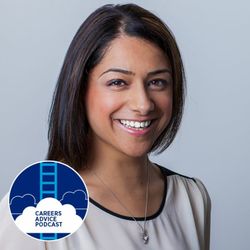
33: How Gen Z can maintain good mental health as they build their careers - Simi Rayat
33:09|33: How Gen Z can maintain good mental health as they build their careers - Simi Rayat In this podcast, Leadership Coach, Simi Rayat shares her top tips on how Gen Z can look after their mental health as they start to build their careers. You can read the full transcript here: https://social.hays.com/2020/10/09/podcast-33-how-gen-z-can-maintain-good-mental-health-as-they-build-their-careers/ Related content: • Hays Journal 19 Podcast: How meditation can benefit your career: https://social.hays.com/2020/10/04/hays-journal-19-how-meditation-benefit-career-megan-jones-bell-headspace/ • How can leaders unlock the careers of the 'lockdown generation'? • How to look after your mental health in a world of ever-changing COVID-19 resrictions: https://social.hays.com/2020/10/01/how-to-look-after-mental-health-ever-changing-covid-19-restrictions/ • How to stop feeling so nervous about starting your new job: https://social.hays.com/2019/09/26/stop-feeling-nervous-starting-new-job/ Timestamps: (01:13) It would be great if you could introduce yourself to our listeners. (01:52)Could you give an explanation as to what we mean by the term mental health? (02:58) We’ve all been impacted in different ways by the pandemic, each of our experiences are unique to us, and in some cases the pandemic will have undoubtedly had a negative impact on people's mental health. But do you think there have been any differences in experiences between generations? (06:12) In what ways do you think the pandemic has impacted young people, which may be different from other generations? (07:46) Do you have any advice to any of Gen Z on how to cope with the persistent and long-term uncertainty that they're probably feeling right now? (11:24) Would you say that Generation Z were already suffering from poor mental health before the pandemic? And if so, what has been causing this historically? (14:37)What are the unique challenges that Gen Z face and how can they overcome them? (16:57) I've heard of a term post-graduation depression. What are the common signs of that? And do you think it might be more common amongst the class of 2020? And how can our listeners start to overcome it if they are experiencing it? (19:27) Sustained periods of national lockdowns around the world have led many to experience anxiety, but focusing on young people, what advice would you give to those that are experiencing this and are perhaps feeling nervous about an upcoming interview or starting their first job? (21:01) For those experiencing self-doubt right now, perhaps if fuelled by comparing themselves to their peers, how can listeners re-frame their negative self-deprecating thoughts to ensure their first steps into the world of work are as positive as possible? (26:27) It's clear that self-care in maintaining good mental health is essential to achieving that, and we've been fortunate enough for you to share tips on how you can maintain that. Is there anything else that you would add or advise that would be relevant to Gen Z? (29:27) World Suicide Prevention Day took place last month and it's well publicised that men are far more likely to die from suicide than women. Do you have any advice for young men who may be listening and perhaps struggling with their mental health at present? (31:47) If you had one piece of careers advice to help our listeners navigate their careers through the pandemic and beyond, what would that be?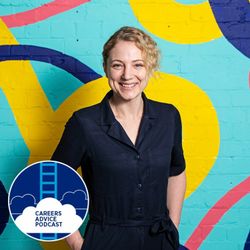
32: How to manage career change and uncertainty as we enter a new era of work - Sarah Ellis
41:07|32: How to manage career change and uncertainty as we enter a new era of work - Sarah Ellis In this podcast, Sarah Ellis, co-founder of professional training and consultancy business; Amazing If shares her advice on how to effectively manage career change and uncertainty as we enter a new era of work. You can read the full transcript at: https://social.hays.com/2020/08/14/podcast-32-manage-career-change-uncertainty-enter-new-era-work/ Timestamps: (01:11)To begin with, please could you give a quick introduction for our listeners? (02:13) You're the host of the Squiggly Careers podcast and author of the Sunday Times bestselling book, The Squiggly Career. Could you just explain to our listeners what you mean by the term Squiggly Career? (04:34) Would you say now due to the pandemic that careers will become even more squiggly or more common as we enter this new era of work? (07:43) How do you think people are generally feeling about their careers at the moment? What are the most common concerns, challenges, and questions that people have been raising with you over the past few months? (09:51) You mentioned uncertainty and change which seems like a common trend and it's completely understandable. Some may be experiencing redundancy of course, restructure or uncertainty around how their current role might look going forward. What advice do you have for listeners to help them navigate this kind of unexpected change? (15:52) You mentioned at the start about change being different if you initiate it yourself. So for instance, if you are initiating that change yourself perhaps by finding a new role or changing careers entirely, do you think now is a good time to do this and what advice can you share to help our listeners? (22:32) You mentioned earlier the importance of having the confidence to make a change. But touching on career confidence more generally, it seems as though many are experiencing a lot of self doubt right now, understandably, regardless of their situation. Would you agree with that and how can listeners build themselves back up if they're experiencing this? (27:49) I really like what you said about documenting those small wins and reminding yourselves of that but sharing them with colleagues as well. And probably linked to the last question for those who are currently in full time employment, who are no doubt extremely busy dealing with the day-to-day and perhaps feel under pressure to somehow prove their worth. What advice would you give those listeners who are perhaps dealing with that? (32:30) Do you think this is an especially difficult time for those whose identities are very closely linked to their job? (35:36) A lot analysis and reporting has focused on the fact that young people are being badly hit by the pandemic from a career and employment point of view. How can those that are about to begin their journey into the world of work ensure they start out on the right foot despite these hurdles? (39:35) Lastly, if you had one piece of advice on top of all the great advice that you've given us today to help our listeners navigate their careers through the pandemic and beyond, what would that be?
31: Worried about returning to the workplace? Here’s how to tackle your anxieties - Emma Mamo
23:24|31: Worried about returning to the workplace? Here’s how to tackle your anxieties - Emma Mamo In this podcast, Emma Mamo, Head of Workplace Wellbeing at the UK mental health charity; Mind, shares her expert advice to help those who are worried about returning into the workplace, manage their anxieties and maintain good mental health. You can read the full transcript here: https://social.hays.com/2020/06/28/podcast-31/ Timestamps: (01:27)It would be great if you could introduce yourself to our listeners. (02:08)Could you define what we mean by the term mental health? (03:30)With many countries across the globe having implemented lockdown measures, those who were able to have been forced to work from home for an extended period of time. How do you think this has impacted people’s mental health? (06:23)And as lockdown measures are starting to be gradually lifted. What do you think are some of the common worries or anxieties about returning to the workplace and what are the causes of those if you’re able to elaborate? (08:56)For anyone that is having concerns about returning to the office or the place of work, that is something that they need to discuss with the manager. How would you recommend that they approach that conversation? (10:37)I think we can all agree that everybody’s experience of lockdown has been unique to them and they’ve experienced it in different ways. Some people might have been living at home with childcare commitments while others may have experienced a change in work patterns and feel disconnected from their organisation or their colleagues. What advice would you give to those people to help them transition back into the workplace from a mental health point of view? (12:35)How would you recommend maintaining good mental health when working in the new hybrid world? (15:14) How can our listeners rebuild or maintain that work-life balance once we start returning to the workplace? (16:49)Do you think that all these factors that we’ve discussed today such as isolation and work-life balance, has led to an increased emphasis on mental health in the workplace from both an employee and an employers perspective as well? (18:56)There’s been a real sense of togetherness amongst employees during the pandemic, as people have been reaching out to one another just to check in and see how each other is. And as a result, there’s been a greater understanding of each of our personal circumstances and tolerance towards one another. How would you recommend that we keep this going and keep taking it forward in, into the new era of work? (21:18) If you had one piece of advice to help our listeners navigate their careers through the current crisis, what would that be?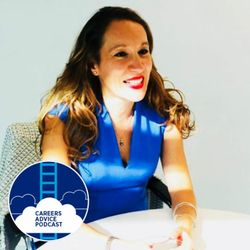
30: How to succeed in your remote job interview - Gaelle Blake, Hays UK & Ireland
23:40|30: How to succeed in your remote job interview - Gaelle Blake, Hays UK & Ireland In these difficult times, most interviews are being conducted remotely either over the phone or by video call. So, in this podcast episode, we're joined by Gaelle Blake, Director of Permanent Appointments at Hays UK and Ireland. Gaelle shares her expert advice for those who are worried about interviewing remotely, to help them overcome their fears and secure their next job. You can read the full transcript at: https://social.hays.com/2020/05/11/podcast-30-how-to-succeed-in-your-remote-job-interview/ Timestamps: (01:03) Please could introduce yourself to our listeners. (01:37) For those who have never done interviews remotely and are feeling especially nervous about doing so, could you provide a brief overview of what they could expect? (04:37) I think we’ve touched on that due to the current circumstances anxieties are high at the moment and could be adding to pre-interview nerves. You even said yourself there that feeling nervous before an interview is only natural and it is very common. So, would you say that a degree of nerves before an interview is actually beneficial to performance? (06:02) Do you have any advice to help our listeners manage their current anxieties and get into the right frame of mind to limit their nerves prior to the telephone or video interview? (08:48) Fantastic, thank you for those insights. They’re really helpful and when you were talking there I was just thinking about how I’d usually prepare for an interview. Part of that process is obviously deciding what you’re going to wear, for me for instance, it might be a suit. But how do we go about that if it’s, I mean a telephone interview is one thing, but a video interview, presumably you go through the same process of planning down to that level as well. (11:18) If we are nervous the day before an interview, then understandably getting a good night’s sleep might be difficult. According to Forbes, disturbed sleeping patterns as a result of the Coronavirus pandemic are impacting the health and quality of life for around 45% of the population globally at the moment. Do you have any advice for our listeners to help them perhaps get a good night’s sleep? You’ve spoken about tips on how to deal with anxiety, but is there anything else that you can provide us with? (13:38) So, on the day of the remote interview itself, some listeners might be feeling understandably worried that it’s going to be difficult to build up a rapport with the interviewer, if the interview is taking place remotely. Do you have any advice to share with them around that point? (14:35) I suppose with video interviews, if there’s a bit of a lag, there’s always the risk of talking over your interviewer, which is something that you don’t want to happen. Is there any way that you can avoid doing that? Personally, I can’t think of how you would, so how would you handle that I guess? (15:43) Now just jumping back a few questions, you mentioned that in preparation for this particular podcast recording that you made sure you were the only one on the Wi-Fi. Do you have any other technical considerations that people should keep in mind to make sure that the interview starts well and in turn will calm their nerves potentially? (17:37) One thing that I’ve thought about, and I suppose this question can apply to normal interviews as well as video interviews once we get back to that point, the prospect of being faced with a panel interview is quite daunting. So, is there any advice that you’ve got for our listeners that could help them give a strong performance when being interviewed by multiple people? (20:02) How can listeners leave a strong lasting impression with an interviewer? (21:43) And now for our last question, if there’s one piece of advice to help our listeners navigate their careers during this crisis, what would that be?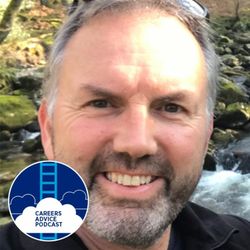
29: What career lessons can we learn from the COVID-19 crisis? - Gordon Tinline
24:01|29: What career lessons can we learn from the COVID-19 crisis? - Gordon Tinline In this podcast, Business Psychologist, Gordon Tinline, shares his expert advice on what can we learn from the COVID-19 crisis to help us be healthier and more productive inside and outside of work, both now and in the future. You can read the full transcript at: https://social.hays.com/2020/05/01/podcast-29-what-career-lessons-can-we-learn-from-the-covid-19-crisis/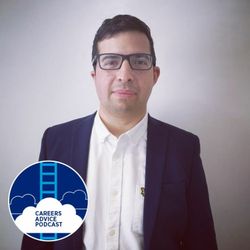
28: How to effectively collaborate when working from home - Kosta Mavroulakis, Empact Ventures
36:36|28: How to effectively collaborate when working from home - Kosta Mavroulakis, Empact Ventures In this podcast, Kosta Mavroulakis, Founder and CEO at Empact Ventures, shares his expert advice on how we can effectively collaborate with our colleagues whilst working from home. You can read the full transcript at: https://social.hays.com/2020/04/24/podcast-28-how-to-effectively-collaborate-when-working-from-home/